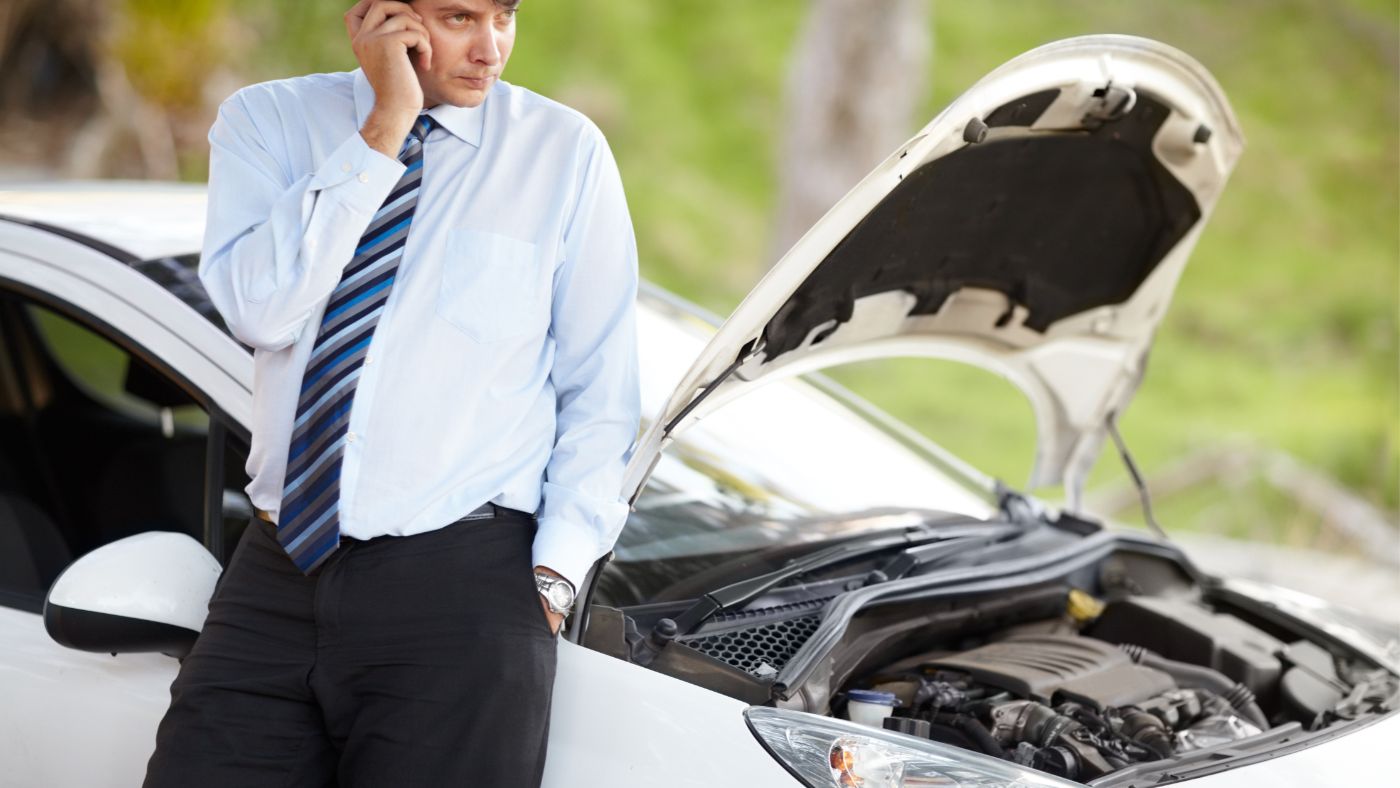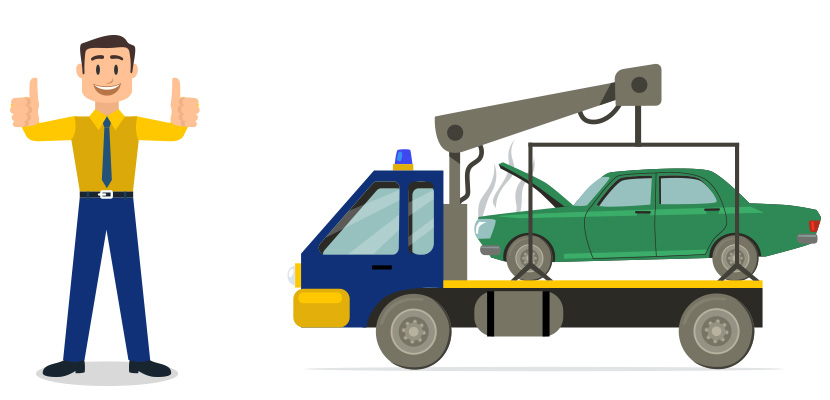If you’ve ever experienced the frustration of turning the key in your car’s ignition and nothing happens, you’re not alone. A car that won’t start can be a significant inconvenience, but it’s essential to understand the underlying reasons behind this issue. This comprehensive guide will explore why cars fail to create and provide troubleshooting tips to help you get back on the road.
- Dead or Faulty Battery
The most common culprit behind a car that won’t start is a dead or faulty battery. A car battery provides the electrical power required to start the engine. If your battery dies, the starter motor won’t receive the necessary electrical signal to crank the engine. There are several reasons why a battery may fail, such as leaving the lights on or not driving the car for an extended period.
To determine if a dead battery is why your car is not starting, listen for a rapid clicking sound when turning the key in the ignition. This typically indicates that the battery doesn’t have enough power to start the engine. Jump-starting your car can provide a temporary solution, but it’s essential to have your battery inspected and potentially replaced by a professional to prevent future issues.
- Issues with the Starter Motor
If your car makes a loud clicking sound when you turn the key, it could be a sign of a faulty starter motor. The starter motor initiates the engine’s motion when you start the car. If there’s a problem with the starter motor, it may not engage with the engine, preventing the car from starting.
To diagnose starter motor issues, it’s essential to have a mechanic inspect it along with the car’s electrical system. They can determine if the starter motor needs repair or replacement. If you have a breakdown cover, you can call for assistance and have a professional address the problem.
- Fuel Problems
Fuel-related issues can also prevent your car from starting. Problems with the fuel pump and electrical or mechanical issues within the fuel system can disrupt the fuel delivery to the engine.
If you accidentally put the wrong fuel type in your car, a service like AA Fuel Assist can help resolve the issue. They specialize in draining and flushing the incorrect fuel out of your tank to get your car running again.
- Electrical or Wiring Problems
Electrical problems within your car can lead to starting issues. These problems may arise from a faulty fuse box, damaged battery cables, or issues with the body control unit. It’s noteworthy that rodents can also cause wiring problems by nesting under the car’s bonnet and chewing on the wires.
If you suspect an electrical issue, having a trained mechanic inspect and diagnose the problem is best. They have the expertise to identify and repair wiring issues affecting your car’s starting capabilities.
- Engine Problems
Mechanical issues within the engine can be a significant factor in a car that won’t start. The crankshaft, timing belt, and timing chain are common culprits for engine-related starting problems.
If you notice unusual sounds from the engine, such as ticking noises or disparities in revving, it may indicate a problem with the timing belt. Regular maintenance, including timely replacement of the timing belt, can help prevent these issues from occurring.
- Faulty Immobilizer
Modern cars are equipped with immobilizer systems as a security measure. If your car’s immobilizer doesn’t recognize your key, it may prevent the engine from starting. This issue can arise if the battery in your key fob is low or if there’s a problem with the immobilizer system itself.
To troubleshoot this problem, hold your crucial fob directly against the start button or use a spare key if available. If the issue persists, you may need to visit a professional to have your key or immobilizer system replaced.
- Alternator Problems
The alternator plays a crucial role in your car’s electrical system. It charges the battery and supplies power to the lights, radio, and heating systems. If you have issues with the alternator, it can disrupt the charging process and result in a car that won’t start.
Symptoms of alternator problems include dimming lights, trouble starting the car, or unusual sounds from the engine. Suppose you suspect an issue with your alternator. In that case, it’s best to have it inspected by a professional mechanic who can assess the alternator’s drive belt, wiring, and overall functionality.
- Engine Intake Issues
Faulty fuel injectors, throttles, fuel pressure regulators, and sensors can cause engine intake problems. If you’ve noticed difficulty starting your car and have experienced sputtering or whining sounds from the engine, it could indicate a problem with the fuel system.
Inspecting and cleaning the fuel injectors and ensuring proper fuel pressure can help resolve these issues. It’s advisable to consult a mechanic who can thoroughly examine the engine intake and address any underlying problems.
- Jammed Ignition or Steering Lock
If you cannot turn the key in the ignition, the steering lock may be jammed. This can occur when the wheel is pressed against a curb or when the steering wheel is turned to its full lock position.
To free up a jammed steering lock, try gently rocking the steering wheel back and forth while attempting to turn the key. Avoid applying excessive force to prevent key breakage. If the problem persists, it’s recommended that professional assistance is sought to resolve the issue.
- Spark Plug Issues
Spark plugs are essential components for igniting the fuel within the engine. If your car doesn’t start, faulty spark plugs could be the cause. One common issue is a flooded petrol engine, which occurs when the engine is switched off too soon after starting from cold.
Signs of a flooded engine include a fast cranking sound when turning the key and a strong smell of petrol. If you suspect a flooded engine, wait a few moments to allow the excess fuel to evaporate before attempting to start the car again.
- Low AdBlue
For vehicles equipped with AdBlue, a diesel exhaust fluid, running out of AdBlue can prevent the engine from starting. Some car models require software intervention to restart after running out of AdBlue.
To avoid this issue, pay attention to the AdBlue warning on your dashboard and refill it before it runs out entirely. If you cannot restart your engine due to AdBlue depletion, it’s advisable to contact a mechanic for assistance.
A car that won’t start can be a frustrating experience, but understanding the common reasons behind this issue can help you troubleshoot and resolve the problem. Several factors can contribute to a car’s failure to start, from dead batteries and starter motor problems to fuel and electrical issues. By following the troubleshooting tips provided in this guide and seeking professional assistance when needed, you can get your car back on the road and ensure reliable starting in the future. Remember to prioritize regular maintenance and address any underlying issues promptly to prevent starting problems in the first place. Be a member of national roadside assistance today!





This post is worth everyone’s attention. How can I find out more?